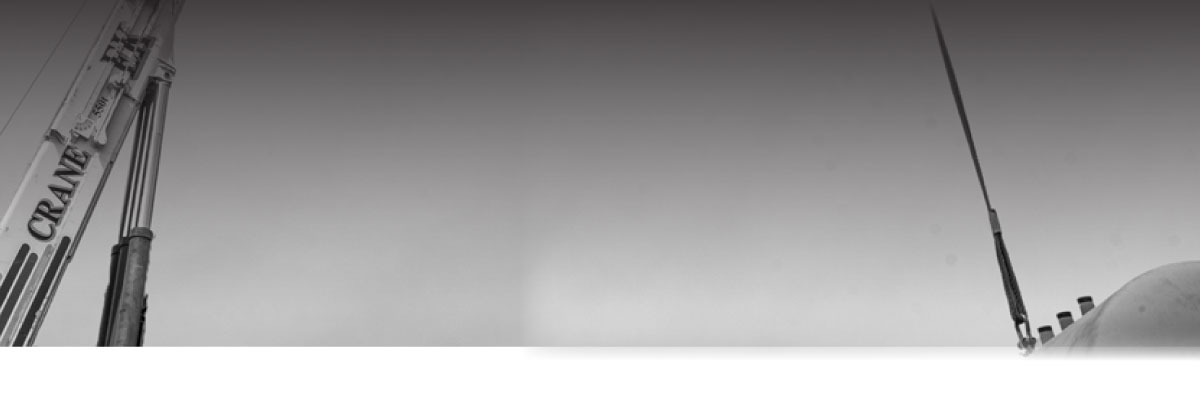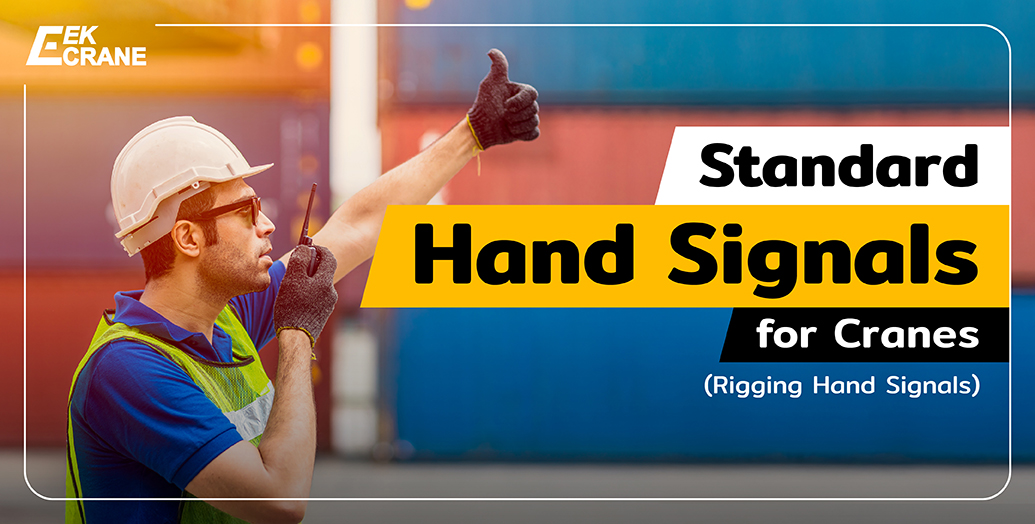
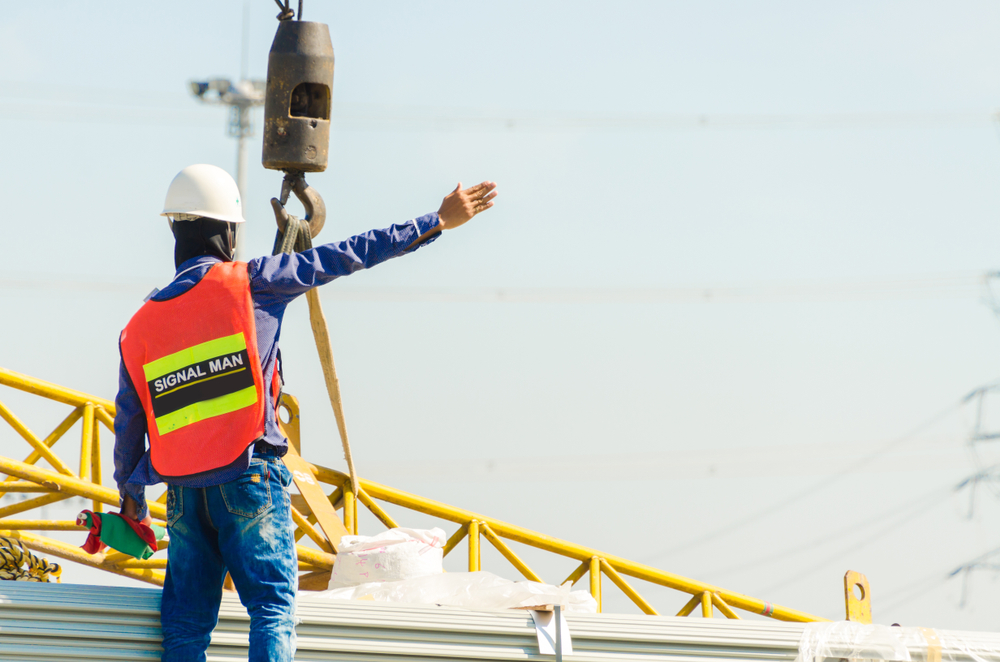
Crane Hand Signals Introduction for Safety
Crane is an important machinery used in construction sites, lifting and moving material around. However, to operate a crane requires not only driving skill, but knowing crane hand signals is also vital for safety.
In this article, we will explain each crane signals both the meaning and how to do the signals.
What is Crane Hand Signal?
Crane hand signal or rigging hand signal is a universal signal using arm and hand to communicate between crane operator and crane signal person. The crane signals can be used even if they are further away from each other and require a little time for each signal, which makes it more efficient than communicating with words.
There are 3 main types of crane hand signal, boom signal, stop signals, and movement signals. Every signal can be operated with only one single person, using hands or arms.
Why is Crane Hand Signal Important?
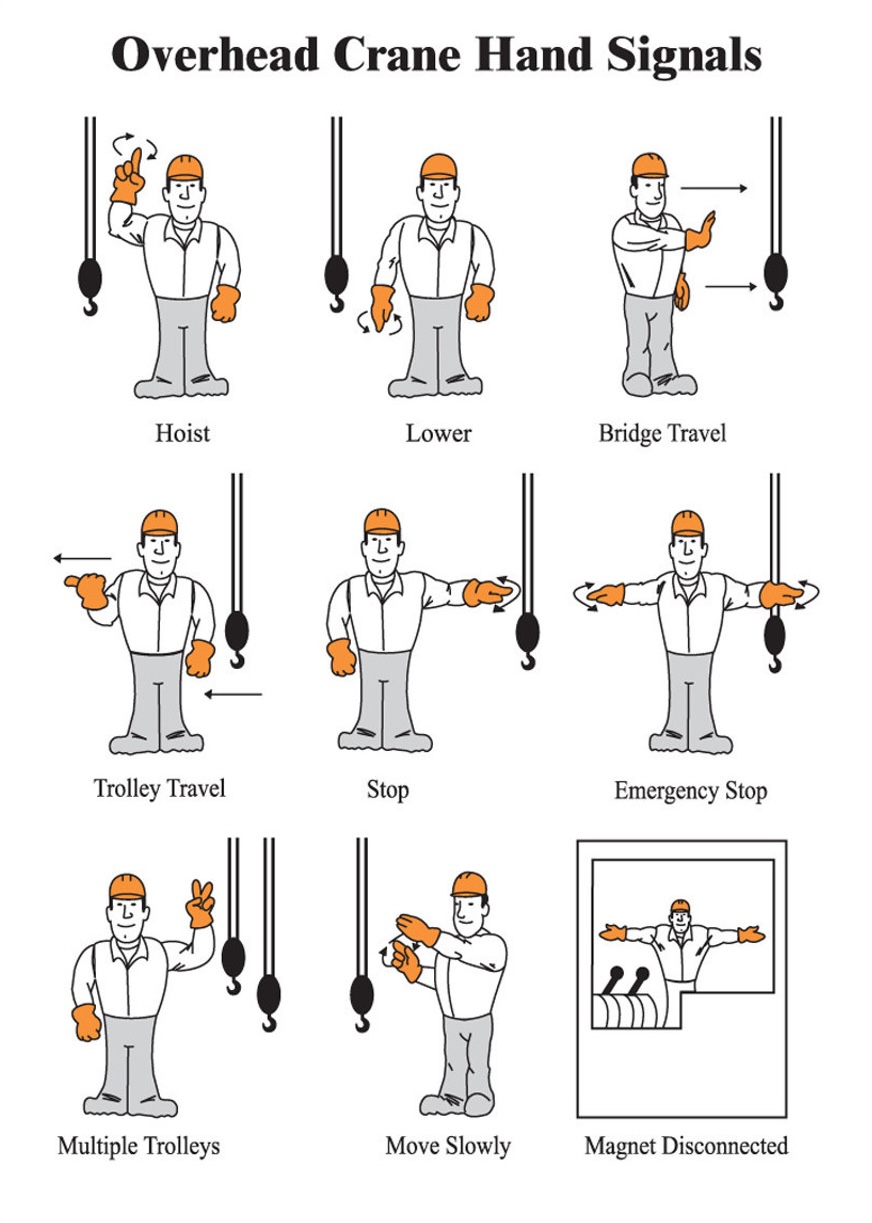
- Crane hand signal is reliable and universally understand by everyone in the operation of crane
- It use less time than communicate through radio or other voice-transmitting device
- It can be seen from a considerable distance
- The signal can improve safety significantly and it is not encouraged to operate a crane without a crane signal person. The crane operator could have blind spot when driving a crane, which could lead to danger.
- Crane operator signal reduce chance of miscommunication through audio, which can be caused by transmitting device
- Rigging hand signal help the crane operation to run smoother and more efficiently.
- It is standard safety protocol.
Boom Signals
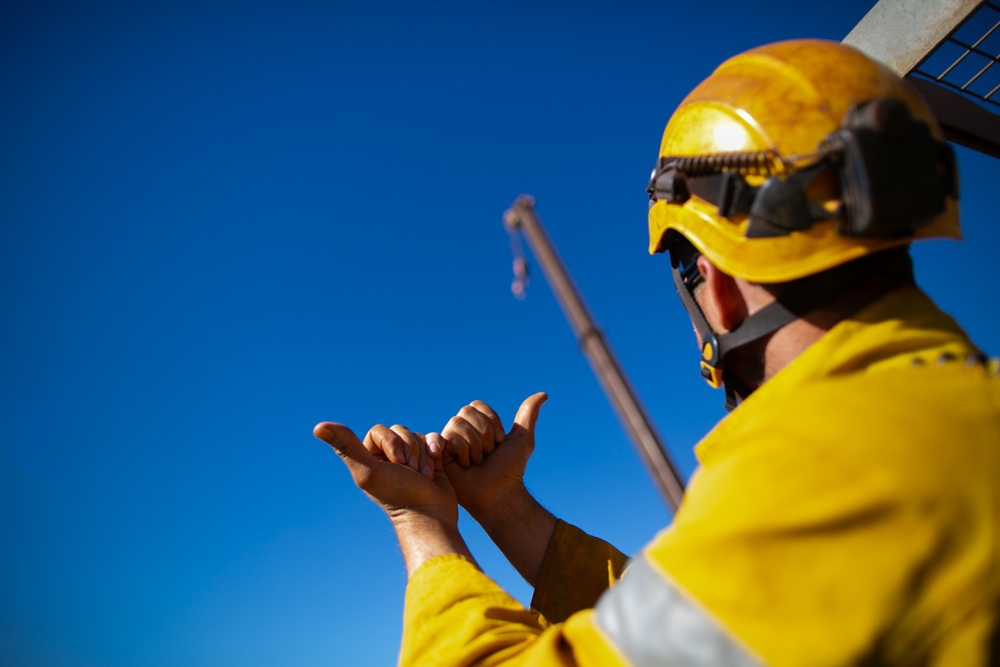
Boom signals are a type of crane hand signals that are used in operating a boom. A boom is a main component of a crane that is used to lift and move the object or material in a construction site.
1. Raise Boom
Extend an arm outward to the side and point the thumb upward. Other fingers are closed into a fist
2. Lower Boom
Similarly to raise boom signal, extend an arm outward but point the thumb down instead.
3. Swing
Extend an arm outward and point to the direction that a crane should swing to with an index finger.
4. Use main hoist
Tap a fist on the head.
5. Use whipline
Extend a forearm vertically and tap on the elbow.
6. Hoist Lower load
Extend an arm downward and point the forefinger down. Make a small circular clockwise motion with the hand.
7. Hoist load
Extend an arm upward so the forearm is vertical. Point a finger upward then move the hand in a small horizontal circular motion,preferably clockwise.
8. Raise boom and lower load
Extend an arm outward and point the thumb upward. Close and open other fingers continually to signal lower load until the operation is finished.
9. Lower boom and raise load
Extend an arm outward and point the thumb downward. Close and open other fingers continually to signal raise load until the operation is finished.
10. Extend Telescopic
Place both fists at the waist level and point both thumbs outward.
11. Retract Telescopic
Place both fists at the waist level and point both thumbs inward.
12. Move Slowly
Use any of the boom signals and place the other hand in front of the hand doing the boom signals. This signal means to operate slower for any action.
Stop Signals
Stop signals are vital crane hand signals for stopping the crane operation. It is important for the crane operator to understand this signal immediately to be able to pause all of the operation for safety.
1. Stop
Extend the arm to the side with the palm down. Swing horizontally to the chest and back to the side again.
2. Emergency Stop
Similarly to the stop signal but use both arms instead. Swing both arms, hands down horizontally back and forth between the side and the chest.
3. Dog Everything
The difference between stop and dog everything is while stop could mean that stop and the crane operation is done, dog everything is a brief pause, resembling a time-out before continuing the operation. The crane hand signal for dog everything is to clasp both hands and hold them in front of the center of your body.
Movement Signals

Movement signals are crane hand signals that are used for moving a crane. Driving a crane also requires a signal as most cranes are quite huge, having a spotter to tell the direction is safer.
1. Travel
Extend the hand in front of the body in pushing motion. Straighten all fingers upward.
2. Crawler Crane Travel (One Track)
Raise a fist to indicate which track to lock. Ball the other hand to a fist and place it in front of your body, rotate in vertical circular motion to tell the direction to move.
3. Crawler Crane Travel (Both Tracks)
Ball both hands into fists in front of your body and rotate them vertically. Rotating toward the body means moving forward, while rotating outward means moving backward.
4. Trolley Travel
Place the fist upward and use the thumb to point the direction that the crane should be moving to.
Summary of Crane Hand Signals
Crane hand signals are essential for ensuring safety in construction sites where miscommunication could lead to grave danger. The signals could be use as a substitution for audio communication and considered to be more efficient, reducing the risk of issue form communication devices.
Thus, every crane operator should understand all of the crane signals. If you are looking to rent a construction crane, consider hiring a rental company that offers a full professional team for efficiency and safety. EK Crane is a crane rental service with a full operation team, including crane operator and crane signal person. Our personnels are trained and full of experience.
EK Crane offers crane rental service for all over Thailand. Contact @EKCRANE for more information.
Our Branch
Bangkok-Samutprakarn Head Office
Tel. +66 2 745 9999
Location: https://maps.app.goo.gl/89scfU8K4VTUfY4W9
Rayong Head Office
Tel. +66 38 682 666
Location https://maps.app.goo.gl/CZw1JGRLGxBmfWDo9
Leam Chabang Sub-Branch
Tel. +66 38 482 666
Location https://maps.app.goo.gl/9qNV26o8LSLBSoN27
